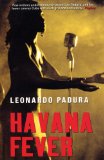Summary | Excerpt | Reviews | Beyond the Book | Readalikes | Genres & Themes | Author Bio

The Count swallowed Amalia’s torrent of words sitting on the
edge of their threadbare sofa, smoking and using his hand as an
ashtray, until Dionisio returned with a chipped, gold-edged dessert
dish which he apologetically handed to the smoker. But Dionisio’s
actions went unnoticed by the Count, entranced by that chronicle
of irrational loyalty. His emotions hadn’t, however, entirely stifled
his critical powers: the automatic alarm developed by his time in
the police was alerting him to the fact that it was only part of the
story, perhaps the most pleasant or dramatic part, though for the
time being he had to go along with what he’d heard.
“Well, if you’ve made your minds up . . . I’ll come back tomorrow
. . .”
“Won’t you take any books now?” Amalia almost implored.
“I’m really not carrying enough money on me . . .”
Amalia looked at her brother and took the initiative: “Look, we
can see you are a decent, honest fellow . . .”
“It’s years since I’ve heard that phrase,” the Count responded.
“A decent, honest . . .”
“Yes, we can tell,” the translucent woman assured him. “Can
you imagine the number of bandits we’ve had to deal with to sell
the vases and other adornments? And how often they offered a
pittance for things that were really valuable? Look, just make us an
offer, take a few books and . . . pay us what you can. How about
it? You can come back, draw up whatever inventory you want and
take the books you then decide to buy . . .”
Conde noticed that while Amalia was talking, Dionisio reacted
almost defensively as if he wanted to shield himself from the words
he was hearing. He discreetly averted his gaze in the direction of
the library, whose mirrored doors remained open, as if inviting
him to walk in and help himself to the royal banquet spread out
there.
“I’ve got five hundred pesos on me . . . Four hundred and ninety,
to be exact. If I’m going to take a few books with me now I’ll need
ten for a minicab.”
“That will do . . .” she replied, unable to rein in her eagerness.
Conde preferred to walk into the library rather than return
Amalia’s look, let alone Dionisio’s. Able to obliterate the remnants
of pride and an old pledge, their despair was the last scrap of dignity
to be destroyed by the calamities that had destroyed those lives. Yet
again, he regretted the sordid side of his trade, but soon found
relief from remorse in his quest for books that would easily sell on
the market. Two volumes of population censuses prior to 1940 that
an Italian was after, a client of his partner Yoyi Pigeon, were the
first he put aside. He then picked out three first editions of works
by Fernando Ortiz – that were always easy to place with readers
keen on rumbling the mysteries of the world of Afro-Cubans; a
first edition of The Slave-trader, by Lino Novás Calvo; and, after
putting to one side several books printed in the nineteenth century
whose value he needed to check out, he bagged several historical
monographs published in Havana, Madrid and Barcelona in the
twenties and thirties, that didn’t have tremendous bibliographical
value, but were coveted by the non-Cuban buyers who flitted from
one second-hand bookseller’s stall to another. He was about to shut
his bag and tot up the total, when he saw before his eyes a book
that practically screamed at him: it was an intact, sturdy, healthy,
well-nourished copy of My Pleasure? with the secondary title of An
indispensable . . . culinary guide, printed by Úcar y García in 1956,
and illustrated by the great cartoonist, Conrado Massaguer. Ever
since that remote afternoon when the Count had seen that book
for the first time in the hands of a nouveau riche owner of several
of those private restaurants that sprang up in the first days of dire
shortages, as a compulsive buyer of gastronomic literature, he’d
tried to track it down, thrilled by its wonderful recipes for Creole
and international cuisine, compiled to satisfy the most aristocratic
kitchens in an era when aristocratic kitchens still existed in Cuba.
However, the Count’s persistent search wasn’t driven by bibliophilic
or even commercial goals, but the grandiose, self-interested idea
that he might present that wonder to old Josefina, the only person
the Count knew with a magical ability to conjure up miracles –
even in times of Crisis – and convert those dream dishes into edible
realities.
Excerpted from Havana Fever by Leonardo Padura Copyright © 2009 by Leonardo Padura. Excerpted by permission of Bitter Lemon Press. All rights reserved. No part of this excerpt may be reproduced or reprinted without permission in writing from the publisher
Your guide toexceptional books
BookBrowse seeks out and recommends the best in contemporary fiction and nonfiction—books that not only engage and entertain but also deepen our understanding of ourselves and the world around us.